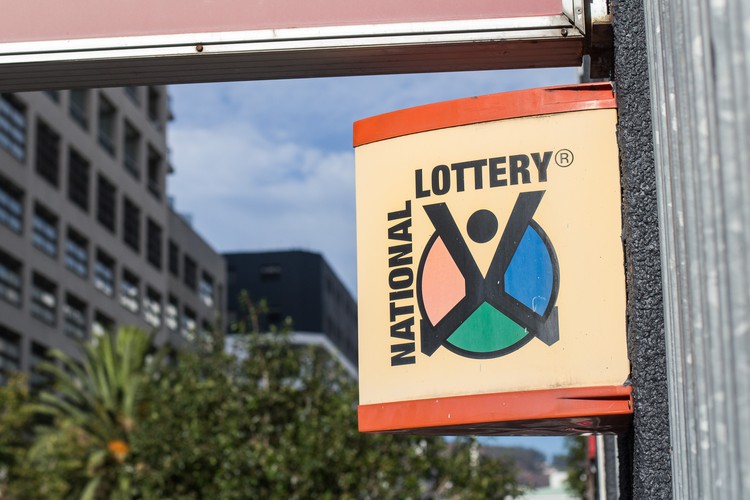
The Minister of Trade and Industry has explained why you can’t buy warm food but not why it’s okay to buy Lottery tickets during the lockdown. Photo: Ashraf Hendricks
24 April 2020
South Africans can’t buy cooked food in terms of the confusing mire of red tape and lockdown regulations. But when it comes to “Tata ma chance” it’s still okay to buy a Lottery ticket.
All other forms of in-person gambling, including casinos, licenced gambling outlets, and horse racing, are affected by lockdown. But retail outlets that are still trading are allowed to sell Lottery tickets.
The ban on the sale of hot food was gazetted by Cooperative Governance and Traditional Affairs (CoGTA) Minister Nkosazana Dlamini Zuma earlier this week.
The justification for prohibiting the sale of hot food was explained by Trade and Industry Minister Ebrahim Patel, who told EWN that it was done to restrict people from leaving their homes.
He said: “Across the country, we have enormous numbers of places selling hot foods and this would create huge numbers of people moving out of bounds to get hot foods and those are vectors of transmission.”
Ironically, Patel also has oversight over the National Lotteries Commission (NLC) but has remained silent on the sale of Lottery tickets.
It appears that Ithuba has been granted an exemption from the lockdown regulations, but how this was motivated is unclear.
“As the regulator of the National Lottery, the NLC has taken note of the Presidential lockdown directive and as such, has activated an exemption clause on lottery play in South Africa,” the NLC said in a statement on 3 April. This, it said, would enable Lottery operator Ithuba to deliver “the National Lottery to South Africans, while observing the regulations of the lockdown”.
Specific questions about the exemption sent to NLC head of communications Ndivhuho Mafela, Ithuba spokesperson Busi Msize, and DTI spokesperson Sidwell Medupe about the sale of tickets went unanswered.
“These measures are intended to reduce person-to-person contact, reduce the movement of people outside their homes, and encourage the use of remote and digital platforms in conducting National Lottery operations,” Ithuba, which has the licence to administer the Lottery said in a statement.
“We have issued clear communication to all our retail partners, emphasising the importance of social distancing and hygiene.”
Shortly before the lockdown began Ithuba confirmed that tickets would still be sold at retail outlets.
“We have made arrangements to ensure that our retail partners received stock before the lockdown commences,” TimesLive reported in a story quoting an Ithuba statement. “Our field staff will also sanitise equipment and train retail clerks and stores on the sanitisation of consumer touch points. This has already been implemented in most stores,” the company said, adding, however, that Ithuba encouraged players to use digital platforms.
Both the NLC and Ithuba have shut down their offices for the duration of the lockdown. The NLC has suspended all operations during the national lockdown, it says in a statement on its website and on its social media platforms. “This includes the call centre. All inquiries (funding, status of applications and media) will be attended to once operations resume,” the statement says.
Ithuba says that while winning payouts have been suspended until the lockdown is lifted, many of its staff are still working remotely.
Both Ithuba and the NLC have actively promoted the safety advantages of purchasing lottery tickets online or by using an App.
Independent research conducted in 2019 for the NLC by UNISA found that poor people dreaming of a big win to help them escape poverty constitute a large portion Lottery players.
The research, conducted among a randomised and representative countrywide sample of 3,000 people, found that 42% of all lottery players have household incomes of R5,000 or less a month. Of those, 6.5% have household incomes of R1,000 or less. The survey also found that almost 28% of the people who play the lottery are unemployed, while 29% receive social grants.
Given the job losses, pay cuts, and the inability of people in the informal sector to earn a living because of the lockdown, it is probable that the financial situation of those surveyed has worsened. It is also likely that many of them do not have the necessary tools or connectivity to buy tickets online or via the App, and will therefore leave their homes to purchase tickets.
Ithuba this week announced a massive R228-million PowerBall and PowerBall Plus jackpot draw for Friday. It is the biggest Lottery jackpot since 2015 and the fourth biggest since the Lottery was launched in South Africa almost two decades ago.
With that much money at stake it is conceivable that there will be a rush to buy tickets at retail outlets by people unable to make online purchases. All this, while the government is trying to encourage people to stay at home during the Covid-19 lockdown.